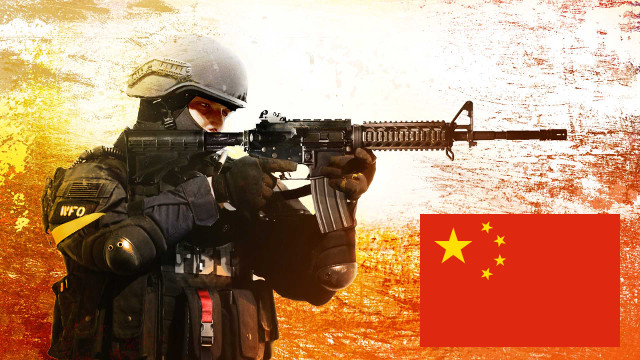Counter-Strike: Global Offensive was officially launched in China this week. Although it had been available to play in the country for several years, it wasn't until this week that it received official distribution and support, including dedicated servers for matchmaking.
This represents a huge opportunity for Valve which is looking to grow the game as it continues to gain further attention in the eSports market where it holds some of the largest prize pools of any game.
Other online games have benefited immensely from Chinese releases. World of Warcraft introduced several million players to its online world in September of 2009. Eight years later Chinese players account for a larger portion of the total game population than any other region in the world, including North America where the game was created.
The Chinese version of CS: GO has seen several adjustments as part of its travel to a new territory. Most prominent will be its far stricter anti-cheat policies when compared to other parts of the world. In addition to custom anti-cheat software not seen anywhere else, it will employ Alibaba's Alipay Credit System.
Alipay is widely popular in China, operating with more than 60 financial institutions and currently the world's most widely adopted third-party mobile and online payments platform. As part of its authority it requires that each individual links their personal government issued ID number to their account along with a phone number and bank account.
Due to the mandatory usage of this system for purchase and authentication of CS: GO in China, any Chinese player who decides to cheat will not only have their Alipay account permanently banned from CS: GO, but also their personal identification number. They will effectively be locked out of purchasing the game again without employing trickery.
During a presentation on Monday, Valve described Alipay as an "authentication anti-spam system".
CS: GO's presence in China will bring with it a league called CPL (not to be confused with the defunkt Cyberathlete Professional League) and City Elite Event, both of which aim to boost the game's eSports popularity in the territory. China will also be the only region to support high quality 128-tick servers, a point that has frustrated many players who have been requesting the addition of higher tick rate servers for many years.
Valve also announced during the presentation that it's developing a CS: GO "A.I. anti-cheat" for use internationally, that it will be ported to the Source 2 engine in the near future, and that the next operation will release during Summer 2017.
As part of CS: GO's debut in China, Valve will be required to publicly publish drop rate percentages for its loot boxes, a point of incredible interest among players who to this point have only been able to speculate the rarity of high value skins using user-provided data points. This will be enforced on May 1st in compliance with a recently passed regulation.
Counter-Strike: Global Offensive is currently one of the top 10 most popular video games in the world with a total of around 11 million unique players per month.
You can view a few photos of Valve's presentation here.







